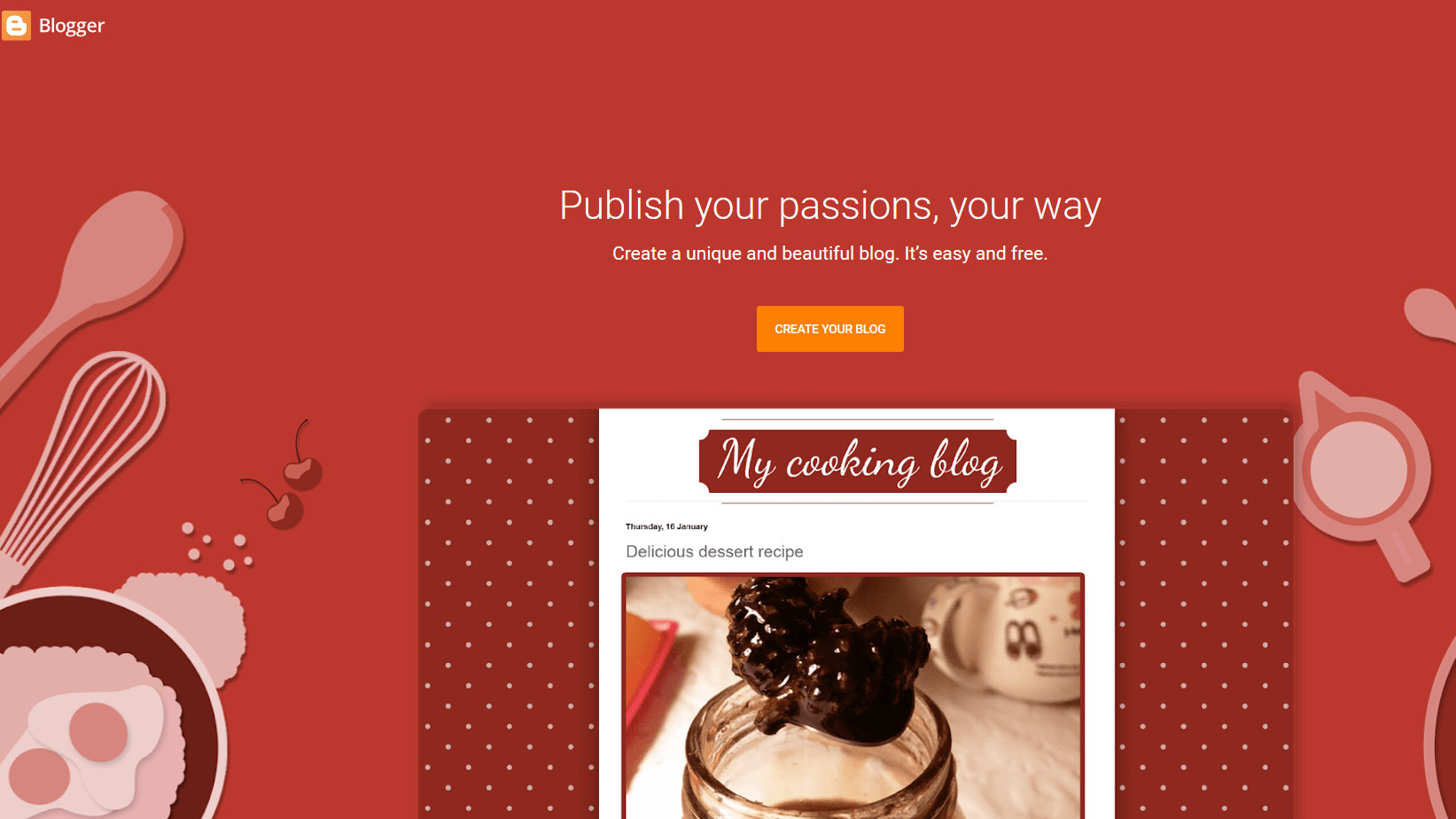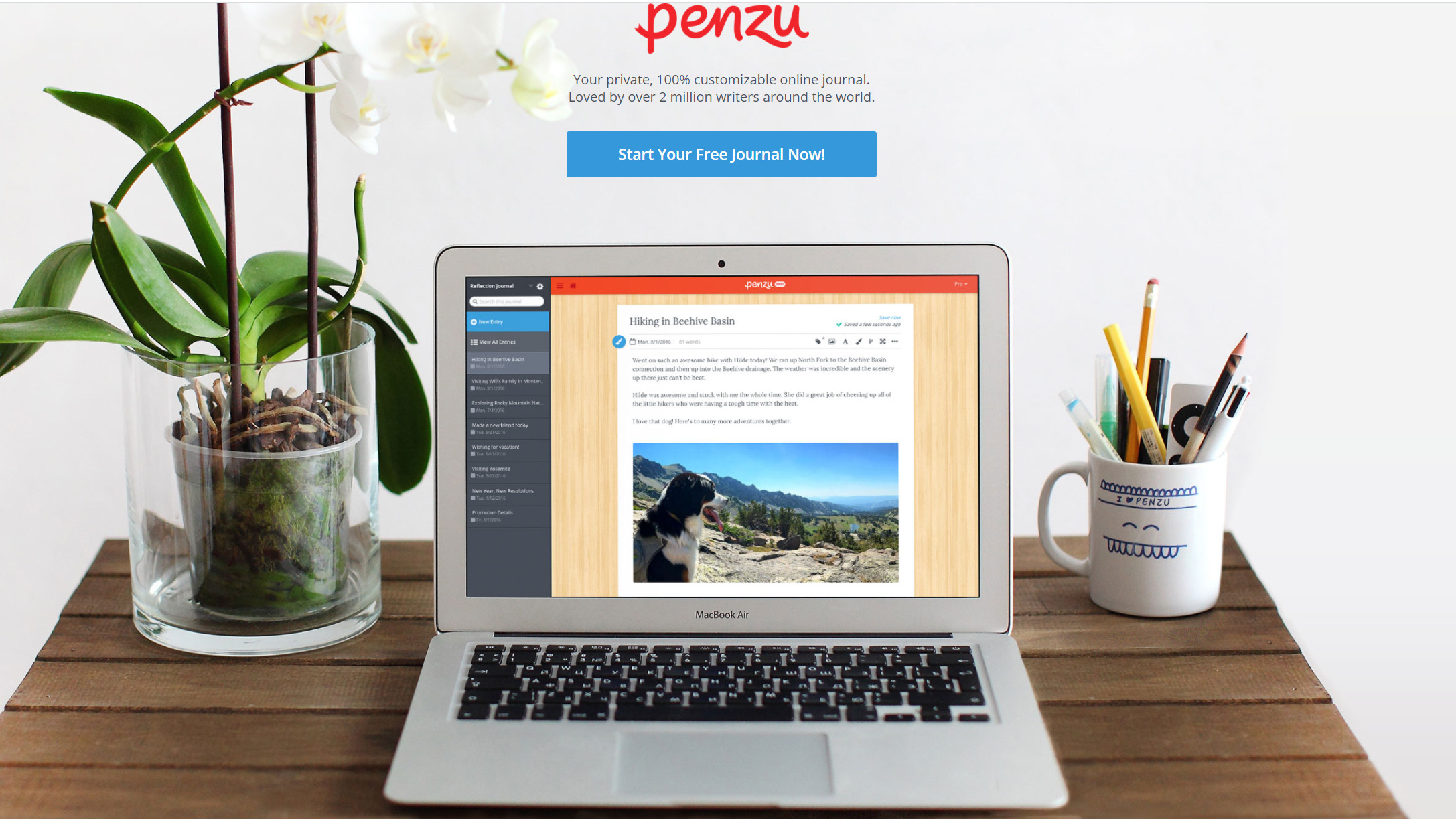Free blogging sites have come a long way in recent years, and it’s now easier than ever to create a professional-looking blog to share a hobby with like-minded people, express your opinions, and establish an online presence.
These free blogging sites are aimed at hobbyist bloggers – blogs are created and managed online, and hosted on the blogging platform’s own servers. If you want to create a self-hosted blog, the downloadable version of WordPress is an excellent option, with total flexibility, support for third-party plugins, and as much storage as your hosting plan allows.
If you're interested in making a static website rather than an online journal, take a look at our guide to the best free website builders.

Take your blog to the next level with Bluehost
Free blogging sites have their limitations which is why you should consider hosting your blog with Bluehost instead. If you sign up for the company’s Shared Plan for $2.95 per month for the first term only, you’ll get $175 in offers, 24/7 support, as well as a free domain and site builder.


Wix has a range of paid-for subscription plans, but also a free offering, although it’s best to note upfront that this has some caveats. With the free product, your site will have Wix branding, and you’ll be limited to 500MB of data transfer per month, so it’s not for heavily-trafficked sites. You also only get 500MB storage, too, so bear that in mind.
Those limits aside, you are free to build a blog with an unlimited number of pages, and where Wix really distinguishes itself is with its powerful blog functionality. The editor may be simple, but you get access to all the stuff you need – from image galleries through to videos and music – and there are a ton of ways to customize a post.
There’s also a lot of flexibility in the way you can schedule posts, and neat touches like being able to set up things so that posts are automatically pushed to Facebook when they’re published. For instance, there's a feature called Wix Bookings that allows customers to schedule appointments and classes right on your website.
And what makes Wix truly compelling is that on top of this, you get the run of the rest of what this website builder offers aside from blog support. That includes using Wix’s ADI (Artificial Design Intelligence) editor, which will ask for some basic info regarding the kind of site you wish to create, and features you want, and will swiftly produce something along those lines for you. That’s an impressive feature for novices, of course.
There’s also commendably diverse support for various different types of media, and quality customer support to boot (yes, even on the free plan). The Wix Turbo feature is also on hand, and this increases the speed and performance of websites considerably.
When you consider what you’re getting for nothing, the bandwidth and data limits don’t seem like such a heavy set of shackles. And you can always upgrade at a later date if you want to break free of them in the longer run.
Try it online: Wix


Powerful and highly customizable, WordPress is a brilliant platform for blogs of any size, and bloggers of all levels of experience.
Creating your first blog is very straightforward, with a simple wizard that guides you through the process of choosing a name and suitable theme. You can leave it there and begin writing posts immediately, but the real fun lies in the more advanced editor, which lets you customize virtually every aspect of your blog’s appearance.
Unlike some blogging sites, WordPress isn’t a drag-and-drop affair, and you’ll have to familiarize yourself with its system of menus. Doing so is well worth the effort, though, and enables you to create something truly personal. The editor also allows you to create static pages – like a writer’s biography, for example.
The post-writing interface is much like an ordinary desktop word processor (though some options are presented in a toolbar at the top, while others are in a menu at the side, which can be a little confusing at first). Again, time spent getting to know the interface is rewarded with advanced features like customizable social media sharing buttons, geotagging, and the ability to pick a custom style for individual posts.
Sometimes you might want to create a photo gallery, for example, and other times a more text-focused style would be more appropriate. You can also view and edit the HTML source.
As your blog grows, WordPress lets you track its stats, including page views, visitors, likes and comments over time. You can also see how readers reach your site, which content they viewed, and where they are in the world, all of which is very useful in terms of being able to tailor your content accordingly.
Your site is hosted on WordPress servers, with an address in the format yoursite.wordpress.com. Users of the free service don’t get email or live chat support, but the WordPress community forums are very active and questions are usually answered within a few minutes. Additionally, privacy protection for domains that are registered at WordPress.com is free.
WordPress displays ads on free blogs, but provided you can live with that, it’s a top-notch solution for a free blogging site.
Try it online: WordPress


Blogger is another superb blogging platform. It’s not quite as powerful as WordPress, but on the other hand, it is more accessible for new users, which comes as no surprise when you learn that it’s owned by Google.
Blogger offers an excellent selection of templates, all of which include mobile versions optimized for smaller screens – a very sensible addition with so many people accessing online content through smartphones these days. Blogger is also web responsive.
Blogger’s post-editing tool is much like WordPress, but offers fewer options. As a result, its toolbars are less confusing – a trade-off between power and usability.
One of Blogger’s best features is its integration with other Google apps and services. For example, it uses your Google Drive account to store images and other files for your blog. Google Drive gives you 15GB of space free, so Blogger is a good choice if you’re planning to share a lot of high-res photos.
Spam comments are a big problem on blogs, so Blogger’s automatic spam filter can help save your sanity. You can monitor comments via Blogger’s dashboard, which also lets you see visitor stats. There are some handy visualizations here, including a world map to show the global distribution of your readers.
Your blog will have an address in the format yoursite.blogger.com, and, like all Google services, will include ads. Support is available through the Blogger user forum, which is very active but has a strange layout that can be a little off-putting.
In all other respects, Blogger is brilliant – in short, it is one of the best free blogging sites if you prioritize ease of use over flexibility, particularly if you are a fan of the Google ecosystem too.
Try it online: Blogger


Weebly takes a modular approach to blog building, with a drag-and-drop editor that lets you choose which elements to add to your site, and where.
Pick a basic template, then plonk various types of content onto the page, including social media links, text, images, maps, and sections of code. It’s a refreshingly simple way to build a blog that feels unique to you, but doesn’t require any messing about with menus.
It’s worth noting, however, that certain content blocks can only be positioned in certain areas; it isn’t a total free-for-all. This makes sense – forcing you to stick within the confines of your chosen template stops the page looking messy – but you might find it limiting.
Blog posts are made in the same way: drag text boxes, picture frames, buttons and page breaks into position, then click to edit them. One particularly nice feature is the ‘secret draft link’, which lets you preview your unpublished post, and even share it with others via email before releasing it into the wild.
Weebly has some other interesting tricks up its sleeve, including an area for pasting in Google Analytics tracking code (though it doesn’t offer analytics itself).
You’re only given 500MB for uploaded content, so photographers might want to look elsewhere. Weebly puts an ad in your site’s footer, but it doesn’t obscure any of your content.
Try it online: Weebly


Whereas the other free blogging sites we've looked at here are designed to get as many eyeballs on your posts as possible, Penzu takes the opposite philosophy, and is the equivalent of a locked diary stashed in a safe.
Penzu is a journal platform that makes your posts private by default and locks them down with at least one password (even after you’re logged in, you need a second one to read or edit your posts). That’s because it’s designed for private thoughts and personal reflection. There are free apps for iOS and Android that enable you to update your Penzu diary anywhere, but the contents are for your eyes only.
Penzu isn’t a tool for self-promotion, so although it’s far from ugly, it understandably focuses on function rather than looks. Custom colors and backgrounds come at a price – currently $20 per year.
It’s a shame that 128-bit AES encryption is also limited to the paid-for version, and there’s a fair amount of pressure to upgrade applied by Penzu. Extra options are often dangled under your nose then yanked away, but the core offering is a good one, and if you simply want a place to record your thoughts and practice writing, Penzu could be just the ticket.
Try it online: Penzu
- Check out the best website hosting services
- Stay safer online with one of these free VPN options
June 30, 2021 at 05:50PM from TechRadar - All the latest technology news https://ift.tt/2I5105z
via IFTTT

No comments:
Post a Comment